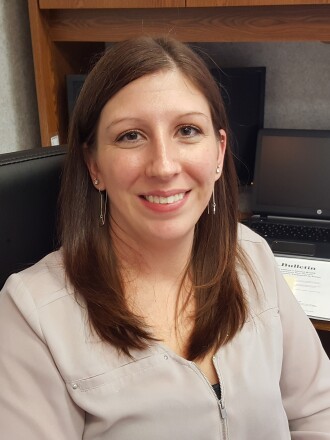WILLMAR
— It has been a busy few years at
Woodland Centers
, the mental health services provider based in Willmar and with offices across a seven-county area.
In 2022 it helped 4,716 clients, with 87 percent coming from the counties of
Kandiyohi
,
Big Stone
,
Chippewa
,
Lac qui Parle
,
Meeker
,
Renville
and
Swift
.
“Woodland Centers is a Certified Community Behavioral Health Clinic,” said Dr. Ashley Kjos, Woodland Centers CEO, at the Oct. 18 meeting of the
Kandiyohi County Board
. “Which really means we provide a wide array of mental health and substance abuse services across the seven-county region.”
Each year the County Board is given an update on Woodland Centers as it considers renewing the purchase of a service contract with the provider. The county is mandated by the state to provide certain mental health services for its residents and contracts with Woodland Centers to provide those services. The 2024 contract includes a 2 percent overall increase in costs, to a total of $1,063,246. The contract was approved unanimously by the board.
“We are so lucky in Kandiyohi County to have services like this,” said Commissioner Corky Berg. “We are exceptionally lucky.”
ADVERTISEMENT
Anne Polta / West Central Tribune
Over the last few years, Woodland Centers has undergone some major changes. In January of 2022, it became a Certified Community Behavioral Health Clinic and began offering several new services — including an adolescent substance use program, medication-assisted treatment, jail mental health services in Kandiyohi County, mental health urgent care, targeted case management, peer support services and care coordination activities.
As a Certified Community Behavioral Health Clinic, Woodland Centers tries to help a client’s whole person, from their mental health and physical health to even their housing and food needs.
“We’re trying to be more understanding and caring, thinking about the whole person,” Kjos said. “We may not be the one providing all those services, but we help make those connections.”
It also started offering same-day appointments for new clients. This not only makes sure people get the help they need as soon as they can, but it has also cut down significantly on no-shows. With same-day appointments, staff saw a 70 percent jump in the number of comprehensive evaluations, the first step toward starting mental health assistance, and saw a drop in no-shows from 26 percent to 14 percent.
“We feel it is working more effectively for our clients and our staff,” Kjos said.
As the needs of clients change, Woodland Centers isn’t averse to ending programs as well. At the end of 2023, alcohol and drug detoxification will no longer be offered.
Kjos said there has been a significant drop in the number of referrals into the on-site detox program and it no longer makes financial sense to offer it.
Over the last several years Woodland Centers has had nearly $1 million in unpaid bills connected to the service.
ADVERTISEMENT
“The cost to provide that service continues to grow and grow,” Kjos said.
Law enforcement shared that there are fewer individuals who meet the conditions to be referred to the Woodland Centers program, Kjos said. People are either intoxicated at home, where they can’t be removed unless breaking the law, or they’re in such bad condition that they require medical intervention.
“We are not having that middle ground anymore, where people are intoxicated out in the community and they need law enforcement intervention,” Kjos said.
Contributed / Woodland Centers
What is needed in the community is opioid detox, but Woodland Centers is unable to provide that because it requires the supervision of a doctor at all times.
However, the organization is doing what it can to help those suffering from opioid abuse. Woodland Centers’ Willmar location has become a regional naloxone access site and provides training on the drug that helps reverse an opioid overdose. So far 200 naloxone kits, each with three doses of the drug, have been given out free to those who request them.
“That could be 600 lives saved,” Kjos said.
Woodland Centers has started partnering with other health organizations as a way to better help clients with their total health. This includes working with the American Heart Association and the National Heart, Lung and Blood Institute.
Kjos said people suffering mental health illness are more likely to die than those who don’t, because those with mental illness often don’t get their physical health problems treated.
ADVERTISEMENT
Contributed / NAMI Minnesota
In 2022 Woodland Centers provided care for people of all ages, with 31 percent aged 18 and under. The number of children needing treatment continues to grow, Kjos said, and Woodland Centers has begun offering drug counselors in three school districts as one way to reach those younger people.
The organization’s mobile crisis unit also provides help for those in need 24 hours a day, 7 days a week, meeting people where they are.
Woodland Centers’ hard work and dedication is being noticed both locally, regionally and nationally. In 2022 it was chosen by the National Alliance for Mental Illness as the Minnesota Provider of the Year.
“That was a pretty big honor for us,” Kjos said.
